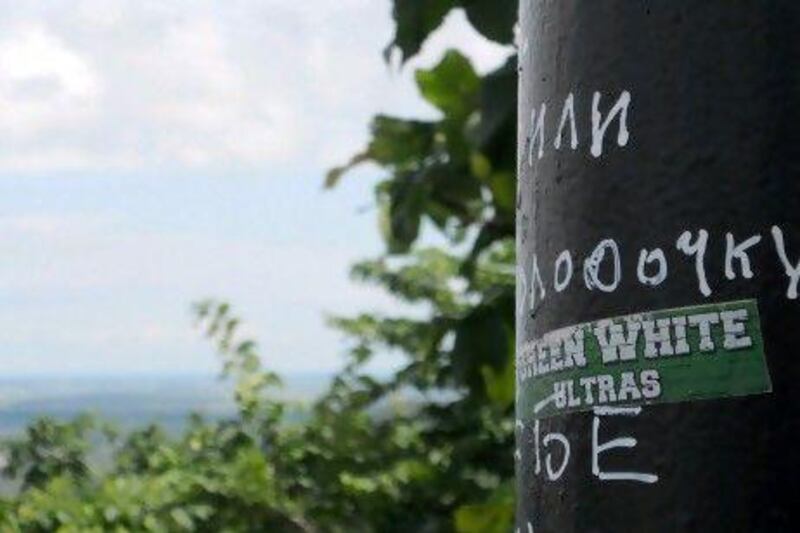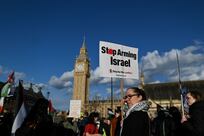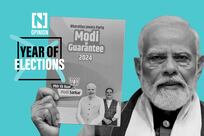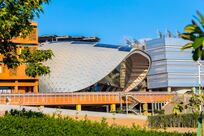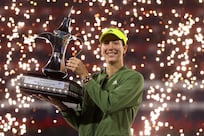KIEV, UKRAINE // Not so long ago, conventional wisdom said that staging the European Championships in Poland and Ukraine was certain to prompt a footballing Armageddon.
Parents and politicians were boycotting Euro 2012 on account of some hellish vision that was being touted of hooliganism and racism in the backwards Eastern bloc. What were Uefa thinking by staging it there?
The scaremongering never did exactly fit with the foreign office advisories. And it never came to pass. After a month in Ukraine, here is the truth about those preconceptions.
Concern // Racism
Upon arrival in Ukraine, this issue was an open sore. "Your country has made very bad news about our country," Kiryk Taras, a small business owner from Lviv, said on day one. "About only 10 per cent of what has been said about racism in our country is true."
While there were reports of racism during the tournament involving Russian, Croatian and Spanish supporters across the border in Poland, there were no instances of anything similar happening in Ukraine.
However, there have been some pointers towards it existing. For example, Lviv's handsome Old Town centre may be Unesco world heritage listed.
But it is still addled with graffiti propounding "white power" slogans, displaying Celtic crosses, and marking the territory of the ultras of Karparty Lviv, the local club who have been known to display swastika flags in the stands on their match days.
According to Marek Horban, the president of Pogon Lwow, a club that represents the small Polish minority in Lviv, the blight is no more pronounced in the western Ukrainian city than anywhere else, though.
"Racism is no more common here than in Europe," Horban said. "In every country there are different types of people. One man may be objective, and the next one might not.
"People can use it for propaganda and say there are robberies, killings and all sorts of things. We are growing up as a country and we will develop and become more European."
What does persist is the sense there is a general suspicion about foreigners. Taras spent two years living in the United States, but felt the lure to return to Lviv immediately after the Soviet Union imploded.
He speaks lucidly about the pros and cons of communism, totalitarianism and democracy, and the merits of Ukraine entering the EU. Yet even he is suspecting.
"I tell people who visit Lviv they are perfectly safe when walking the streets because there is no immigration," he said. "Crime only happens where there is immigration."
Not everyone agrees with that viewpoint, though. Mamadou, a Senegalese student who is studying for an economics degree in Kharkiv, said he faces few problems in day to day life.
"Some people here are good and some bad, like anywhere," he said. "They mostly like you if you have money, that is the most important thing to people here."
Verdict: Mostly unfounded
Concern // Profiteering
This was highly predictable given the simple laws of supply and demand. Outside of Kiev, the capital, and Lviv, the small western city which is well set up for tourism already, the demand was massive but the supply painfully minimal.
As such, prices of those available rooms sky-rocketed. Understandable, some supporters suggested, but certainly not to the exorbitant extent of a number of operators.
The eastern cities of Kharkiv and Donetsk have little to suggest they will attract tourist hordes in the future, so they did their best to coin it in while the sun shined.
The Hotel Kharkov, located in prime position in the centre of Kharkiv, had a new carpet and some neatly painted walls. As a result, it felt justified in charging 20 times the prices that had been touted in the Ukraine edition of the Lonely Planet guidebook.
One Portuguese family who had traveled to Kharkiv from Canada were upset they had been forced to pay $325 (Dh1,200) for a flat which was less than the "luxury apartment" that had been advertised.
Donetsk was even worse. An unprepossessing mining city which has an incredible football stadium, but not much else, going for it, was massively overpriced for the standards it provided.
For example, one company, said to be at the budget end of the operators, were charging 3,400 hyrvnia (Dh1,550) for a small studio apartment in a tatty tenement building in a run-down part of town. The lift smelt of dog urine, the stairs were dimly lit and smoke addled, the bed was a futon and not much else besides worked.
It would have been habitable as a genuine budget option, but for the nightly charge, it was nothing short of a con.
The owners themselves all but admitted as much. "The price during this period is really a bit too high but it is forced to be due to the tournament," said Valenty Bogaychuk, the customer service manager for the Stadium Apartments in Donetsk.
"We tried to improved our conditions and services but we still have some mistakes and we are sorry for them."
However, the fault was only partly that of the hoteliers. According to some companies spoken to, they were paying three times as much tax to the government on their earnings as usual for the duration of the tournament.
If that was true, then it was not just the hoteliers whom Michel Platini, the Uefa president, should have been deeming "bandits and crooks" for the rampant profiteering.
Verdict: Strongly true
Concern // Hooliganism
"We will wait for the Euro," the graffiti of the ultras warned. It never happened, at least not in Ukraine.
Russia and Poland fans fought pitched battles when their teams met, but there was historical relevance to that. Croatia's supporters let themselves down, too.
However, all that occurred across the border in the western of the two co-hosts. In Ukraine, meanwhile, the sort of festive conviviality which has long been the norm at major international tournaments pervaded.
Even the English bought in to it. So much so that their supporters even turned on one of their own to show their high regard for Ukrainians - albeit with a grotesque gesture.
When they played their final pool match against the co-hosts in Donetsk, a group of England supporters carried a coffin down the city's main street.
On it was daubed a red St George's cross, and the words: "You were wrong, Campbell." It was a reference to the widely-reported comments of Sol Campbell on the BBC programme Stadiums of Hate, in which the former England captain said supporters might return home from Ukraine in a coffin if they made the trip for the tournament.
"It's been fantastic as the Ukrainian people have been so friendly," Paul Joyce, an England supporter who flew to all four of their matches, said ahead of the pool match against Ukraine. "I've been stood chatting with a group of people from here all day."
All throughout, rival supporters inside the grounds were barely ever segregated, yet no noteworthy disturbances occurred.
The worst incident was when Germany fans lost themselves in high jinks in their opening match against Portugal, and started lobbying scrunch up bits of card onto the field. Hardly ferocious.
The doomsayers suggested that those missiles were going to be stones and flares. It did not happen.
Verdict: Strongly unfounded in Ukraine
Concern // Absenteeism
Whether it was due to the prevailing economic climate, the prohibitive accommodation costs, the logistics of the tournament, or the predicted violence that did not eventuate, traveling supporters were relatively few, at least in the knock-out stages.
It was telling that the best supported sides were those who played all three of their pool matches in the same venue, thus limiting the journeys their supporters had to make.
Sweden did not have to move from Kiev. As a result, they totally outnumbered England's supporters when the sides met at the Olympic Stadium, by as much as 20,000 to 4,000.
To cut down their costs, many supporters had pitched tents at a site the Ukrainian authorities referred to as "Camp Sweden".
Holland, too, were able to call on enviable numbers of supporters, as they did not have to move from Kharkiv. As many as 5,000 Dutch people camped there.
Ironically, neither Sweden nor Holland advanced from the pool phase, so the only onward trip the supporters had to make was the return one home.
England are not used to being so heavily outnumbered by rival fans, and Roy Hodgson, their manager, was certain it was down to more than just travel costs.
"If you talk about negativity, the biggest negative about this tournament before we left England was about how this tournament would be, how dangerous it would be for the fans who came out here," Hodgson said.
"As a result we lost a lot of fans who have been put off by horror stories about how life would be in Ukraine and Poland.
"I feel sorry for those people because all the people who have come over here, they can't speak highly enough and we have been treated with great courtesy and kindness everywhere."
Ukrainian authorities did appear deluded at times, however, about just how well they had done out of the tournament.
Local tourism officials were quoted as saying they expected 50,000 foreign people to arrive in Donetsk for Spain's semi-final against Portugal.
That was nonsense. Spain had around the same amount, around 2,000 supporters, for that game as they did their previous one against France.
France had only around 250 travelling supporters, while Portugal's contingent was difficult to estimate, but certainly a good deal less than Spain's following. There were masses of empty seats for what were plum fixtures.
"It is not a case of that being a small number," said Vicente del Bosque, the Spain manager. "We are grateful that that many have been able to come."
Many of those who did were unimpressed, both by the costs, the effort it took to get there, and the paucity of things to do in Donetsk, other than visit the football stadium.
"It is really difficult to get here," said Javier Garcia, a Spain supporter. "And then when you do, there is not much to do anyway."
Verdict: Partly true
Follow us
[ @SprtNationalUAE ]
